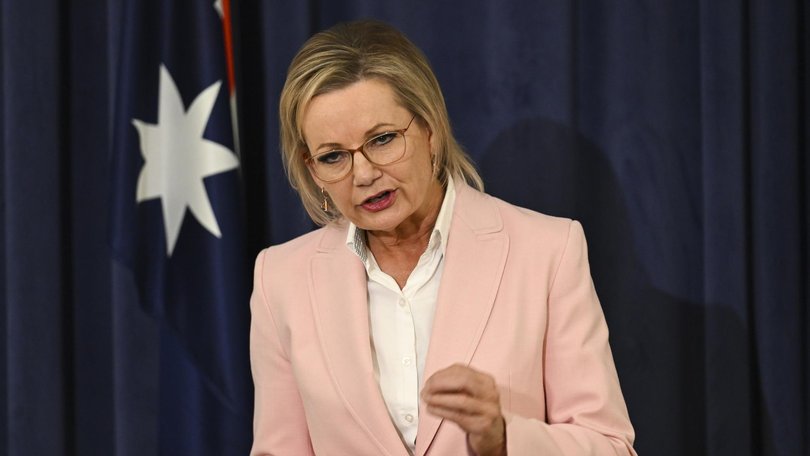Opposition Leader Sussan Ley writes to US over Australia’s decision to recognise a Palestinian state
Opposition Leader Sussan Ley has written to the American politicians, claiming the decision to acknowledge Palestine ‘does not reflect the view of a majority of Australians’.

Opposition Leader Sussan Ley has written to the American politicians, claiming the decision to acknowledge Palestine “does not reflect the view of a majority of Australians.”
It comes as Prime Minister Anthony Albanese is preparing to meet the French president on the sidelines of the United Nations General Assembly as he defends Australia’s stance on Palestinian recognition.
In her letter, Ms Ley pointed to an August Resolve poll showing 44 per cent of voters believed the government should not recognise statehood, 32 per cent thought the government should wait until Hamas is removed from power, and 24 per cent backed Labor’s moved to recognise statehood.
Sign up to The Nightly's newsletters.
Get the first look at the digital newspaper, curated daily stories and breaking headlines delivered to your inbox.
By continuing you agree to our Terms and Privacy Policy.“I write to reassure you, and the Congress, that this decision taken at this time by the Labor government does not enjoy bipartisan support here in Australia. The federal opposition opposes this decision and would reverse it should we form government,” Ms Ley wrote on Monday.
The Opposition Leader, who also flagged plans to visit the US in early December, also posted on social media that she had expressed her concerns to Israel’s foreign minister.
Mr Albanese and Emmanuel Macron will sit down in New York on Tuesday (AEST) for their third official meeting, where the conflict in the Middle East is likely to be on the agenda.
The Prime Minister will also address a summit of world leaders gathering to discuss the next steps towards ending the war between Israel and Hamas, and an eventual two-state solution.
The talks will be co-chaired by Mr Macron and Saudi Arabia’s Crown Prince Mohammed bin Salman.
Mr Albanese will use his speech to compare the plight of Palestinians to that of the Jews before the creation of Israel.
“In recognising Palestine, Australia recognises the legitimate and long-held aspirations of the Palestinian people,” Mr Albanese will say.
“It means real hope for a place they can call home.
“This is the same hope that sustained generations of Jewish people.”
In his speech to the two-state solution conference, Mr Albanese will also urge the Israeli government to “accept its share of responsibility” for the “humanitarian catastrophe” in Gaza.
A swathe of countries are using this session of the UN General Assembly to recognise Palestine, including Australia, the UK, Canada, France, Portugal, Malta and Andorra.
Roughly 150 of the UN’s member states, or more than three-quarters, now recognise its statehood.
Australia faces pushback from 25 US Republicans who suggest “punitive measures” could be imposed on countries that recognise a Palestinian state.
The grouping of hardline Israel supporters, including former presidential candidate Ted Cruz, says the countries choosing to recognise Palestine now are “rewarding terrorism”.
Mr Albanese is still working to secure a formal face-to-face meeting with Donald Trump, and is likely to speak with him at least briefly at a leaders’ reception on Wednesday (AEST).
However, there are doubts that Mr Albanese will be successful in securing the meeting after the White House announced a list of country leaders who will have bilateral talks with Mr Trump after he arrives in New York on Tuesday (AEST).
Australia was not on the list read out by White House press secretary Karoline Leavitt.
Ms Leavitt also suggested the decision by Australia, and its allies Canada and the UK, to announce their support for a Palestinian state put them all at odds with Mr Trump.
